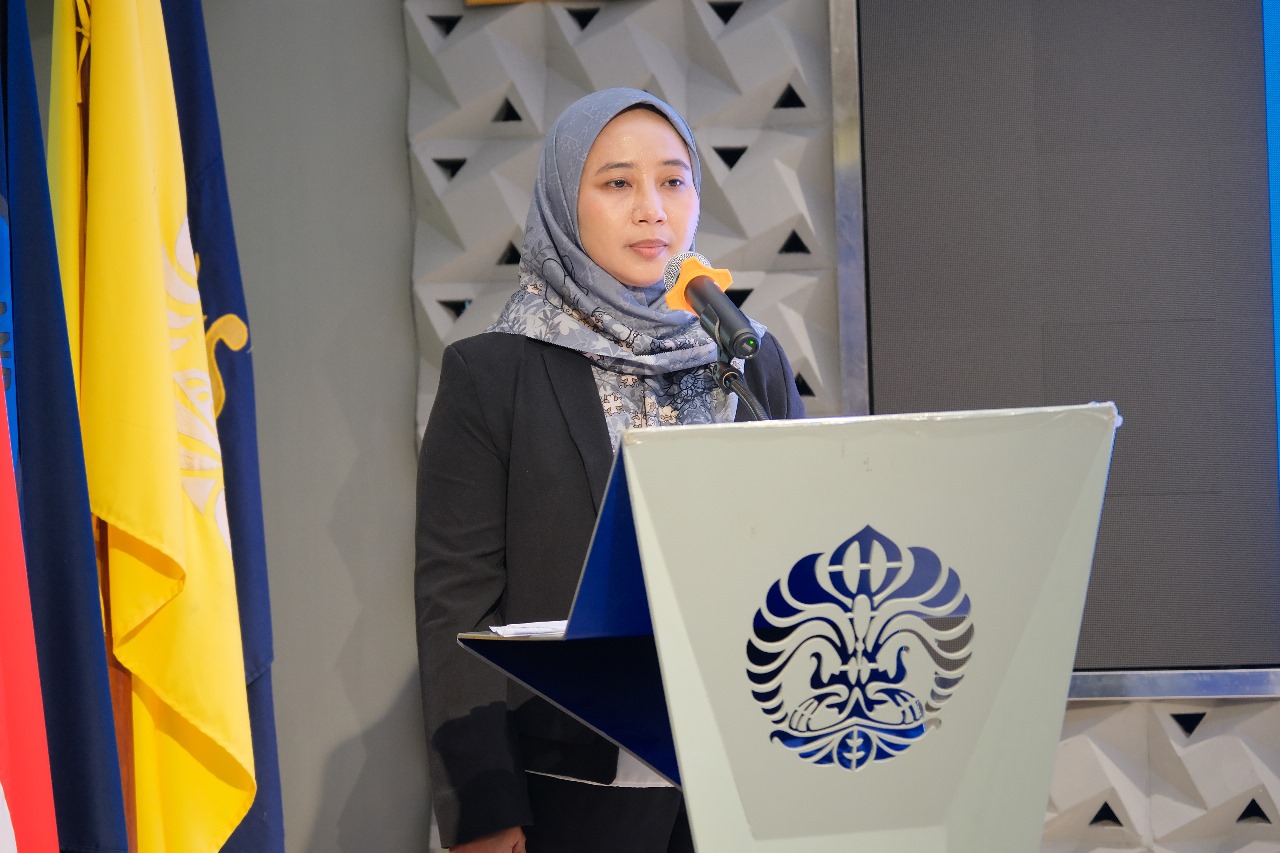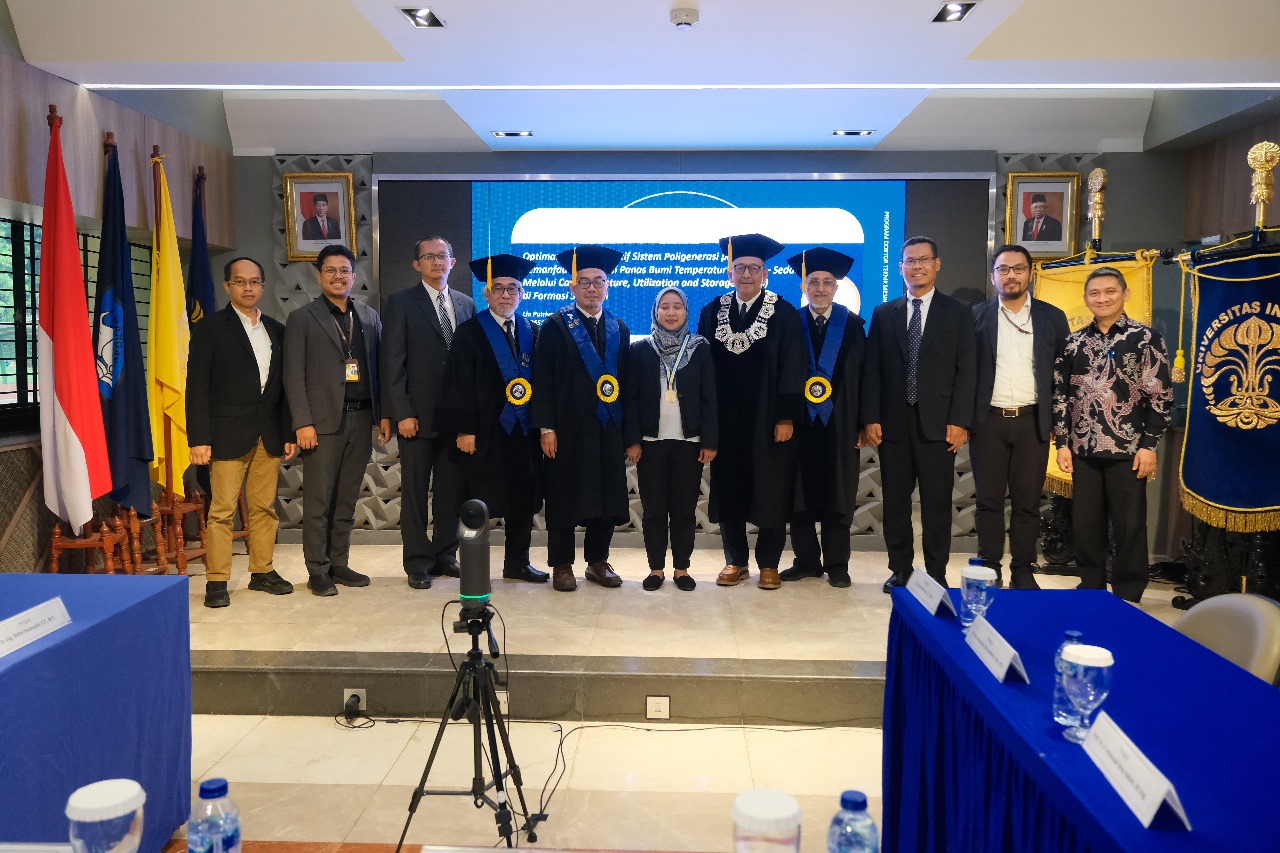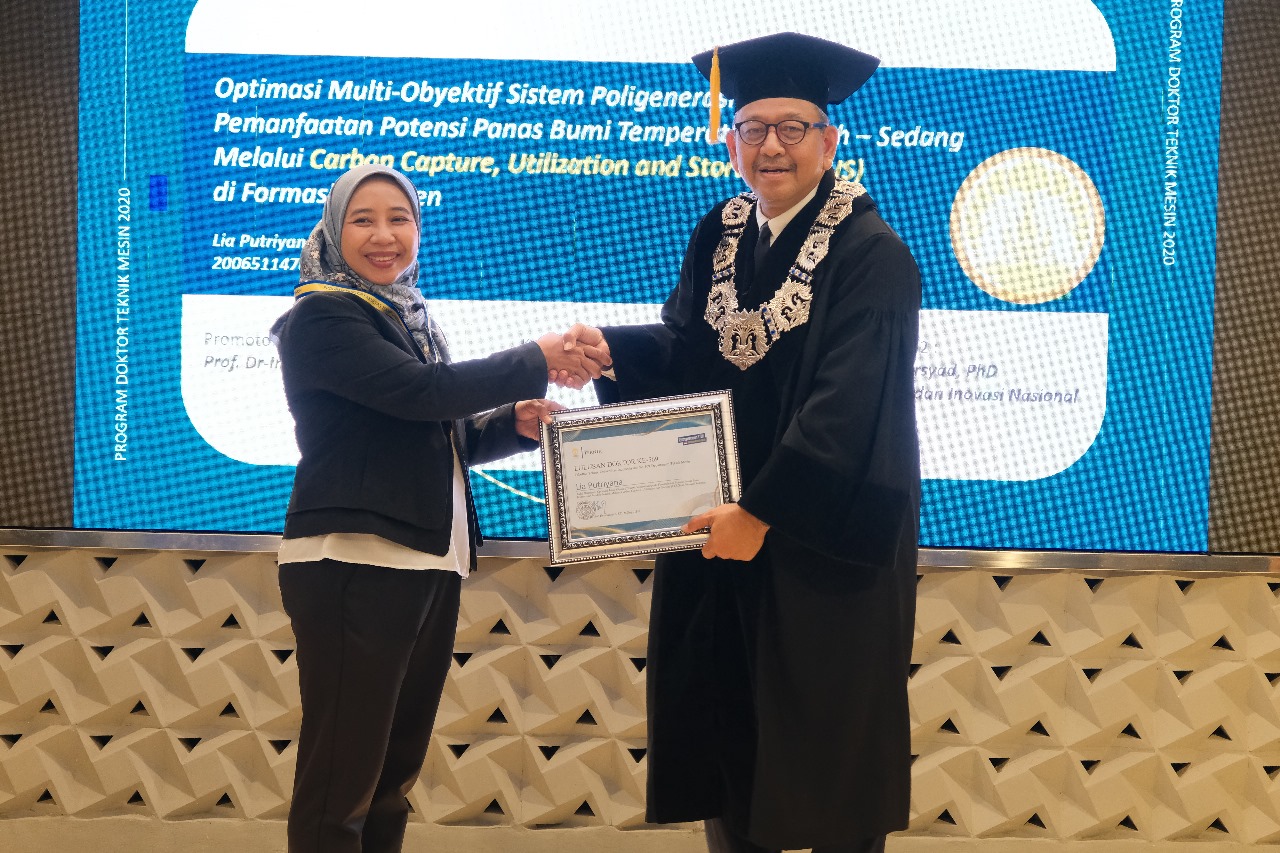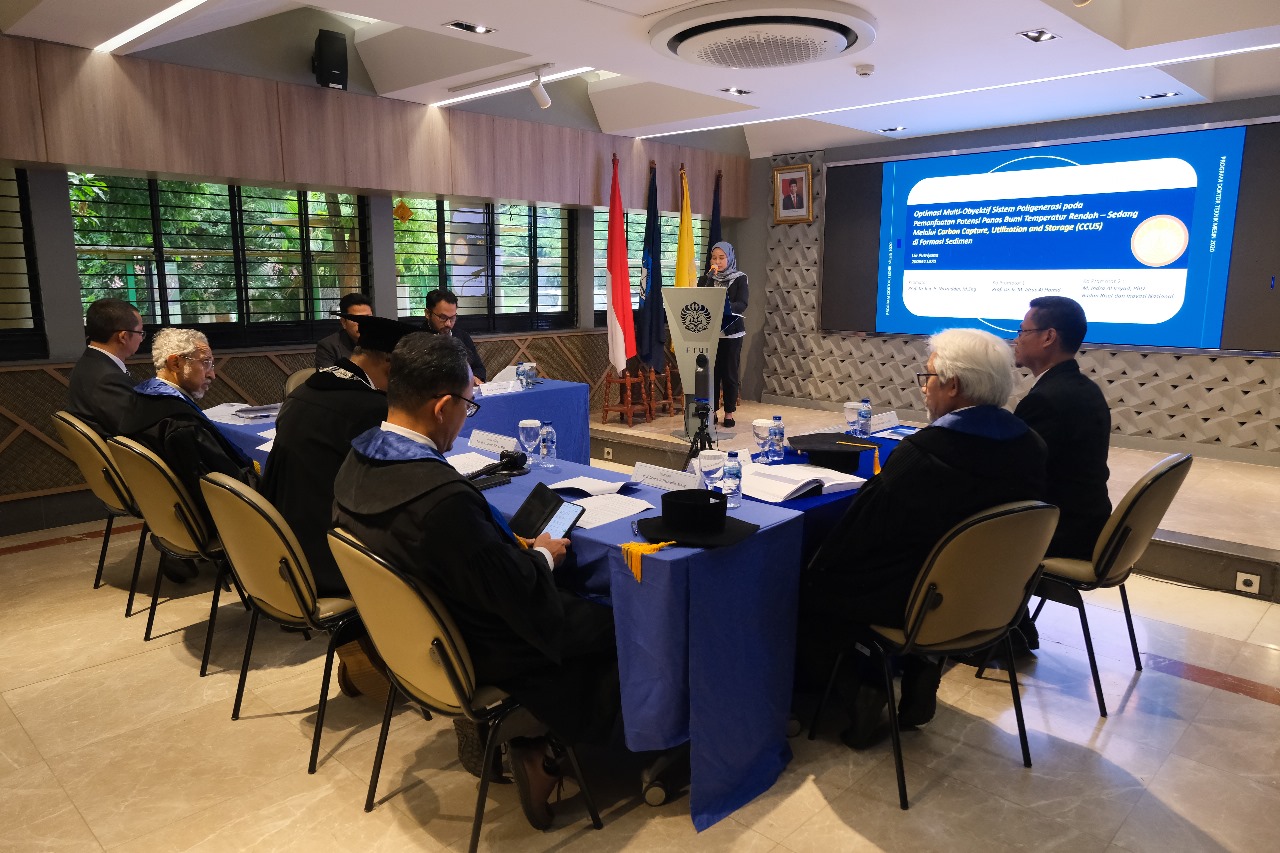To support Indonesia’s carbon emission reduction targets, a strategic approach has emerged through the utilization of low-to-medium temperature geothermal energy combined with Carbon Capture, Utilization, and Storage (CCUS) technology. This initiative is highlighted in the research conducted by Lia Putriyana, a doctoral student in the Department of Mechanical Engineering at the Faculty of Engineering, Universitas Indonesia (FTUI).
Lia presented her research in her dissertation titled “Multi-Objective Optimization of a Polygeneration System for Low-to-Medium Temperature Geothermal Energy Utilization through Carbon Capture, Utilization, and Storage (CCUS) in Sedimentary Formations.” The results of this study were presented during her open doctoral promotion session held on Monday, October 14, 2024, at the Makara 04 Smart Meeting Room, FTUI Dean’s Office.
The dissertation focuses on the potential of geothermal energy, which has yet to be fully optimized, particularly in areas with low-to-medium temperatures. “This geothermal energy is combined with CCUS technology, which captures and stores CO2 in sedimentary geological formations, significantly reducing carbon emissions. By utilizing low-permeability geological formations, this technology allows operation in areas that were previously considered economically unfeasible,” explained Lia.
The research began with an inventory of low-to-medium temperature geothermal fields in Indonesia, followed by an assessment of underground conditions suitable for CCUS implementation. From this analysis, the Batubini, Sanggala, and Mengkausar geothermal fields were identified as the three most suitable locations for CCUS technology application.
Lia also explained, “In addition to identifying geothermal fields, this research developed a polygeneration system that integrates various renewable energy sources for different purposes. This system includes clean water production through desalination, hydrogen production, cooling, and electricity generation using a binary cycle and supercritical CO2. With this approach, low-to-medium temperature geothermal energy can be utilized more efficiently, producing multiple outputs with high energy efficiency.”
Numerical simulations were also carried out for one of the selected geothermal fields to determine the potential electricity output. Sensitivity analysis of various key parameters was conducted to evaluate how changes in variables affect the production costs of electricity, hydrogen, clean water, and CO2 capture.
Lia’s research validated models for desalination, hydrogen production, cooling, and CO2 capture, comparing them against previous experimental results. The study continued with multi-objective optimization to assess how variable changes could impact the levelized costs of electricity (LCOE), hydrogen (LCOH), clean water (LCOFW), and CO2 capture (LCOCO2).
“This optimization provides insights into the best ways to minimize costs while improving energy efficiency. The optimization results show that changes in several parameters can significantly impact production costs, offering opportunities for further efficiency improvements,” Lia concluded.
The research demonstrates that Indonesia holds significant potential for utilizing low-to-medium temperature geothermal resources that have been underutilized. With the implementation of CCUS technology, Indonesia can effectively reduce CO2 emissions while harnessing renewable energy resources for various energy needs. This technology offers a dual solution: increasing energy production while reducing environmental impacts.
FTUI Dean, Prof. Dr. Ir. Heri Hermansyah, S.T., M.Eng., IPU, highlighted the economic, energy, and environmental benefits of geothermal and renewable energy-based polygeneration systems, as demonstrated by Lia’s research. “This system also opens up opportunities for Indonesia to leverage renewable energy to meet domestic energy needs while supporting the national target for carbon emission reduction,” said Prof. Heri.
Lia Putriyana’s dissertation successfully earned her a doctorate in Mechanical Engineering with honours, achieving a perfect GPA of 4.0. She became the 109th doctoral graduate from the Department of Mechanical Engineering and the 569th from the Faculty of Engineering, Universitas Indonesia. The doctoral promotion session was chaired by Prof. Dr. Ir. Yanuar, M.Sc., with Prof. Dr. Ing. Ir. Nasruddin, M.Eng. as the supervisor, and Prof. Dr. Ir. Muhammad Idrus Al Hamid and Muhammad Indra Al Irsyad, S.T., M.T. as co-supervisors. The examination committee included Prof. Dr. Ir. Imansyah Ibnu Hakim, M.Eng.; Dr. Ir. Yunus Daud, M.Sc.; Dr. Ing. Ridho Irwansyah, S.T., M.T.; Dr. Eng. Arnas, S.T., M.T.; and Dr. Eng. Sholahudin, M.Sc.
***
Public Communications Office
Faculty of Engineering, Universitas Indonesia




